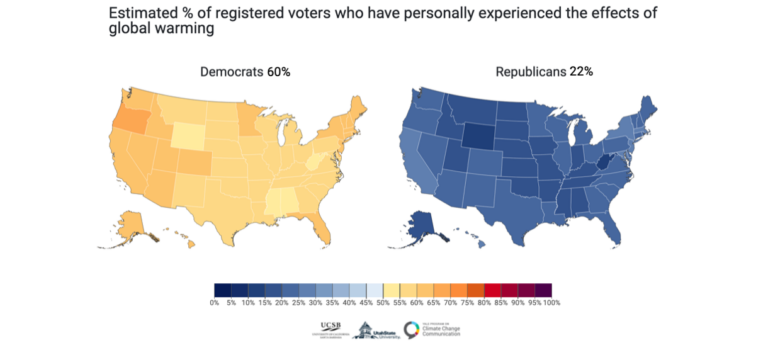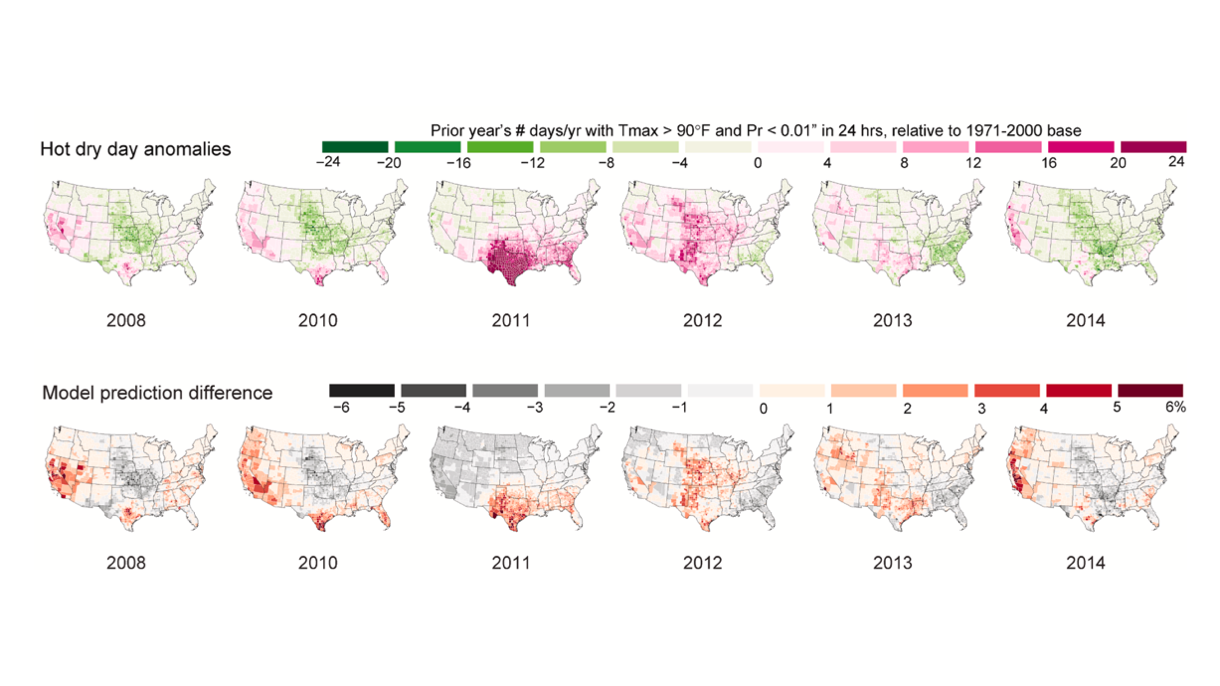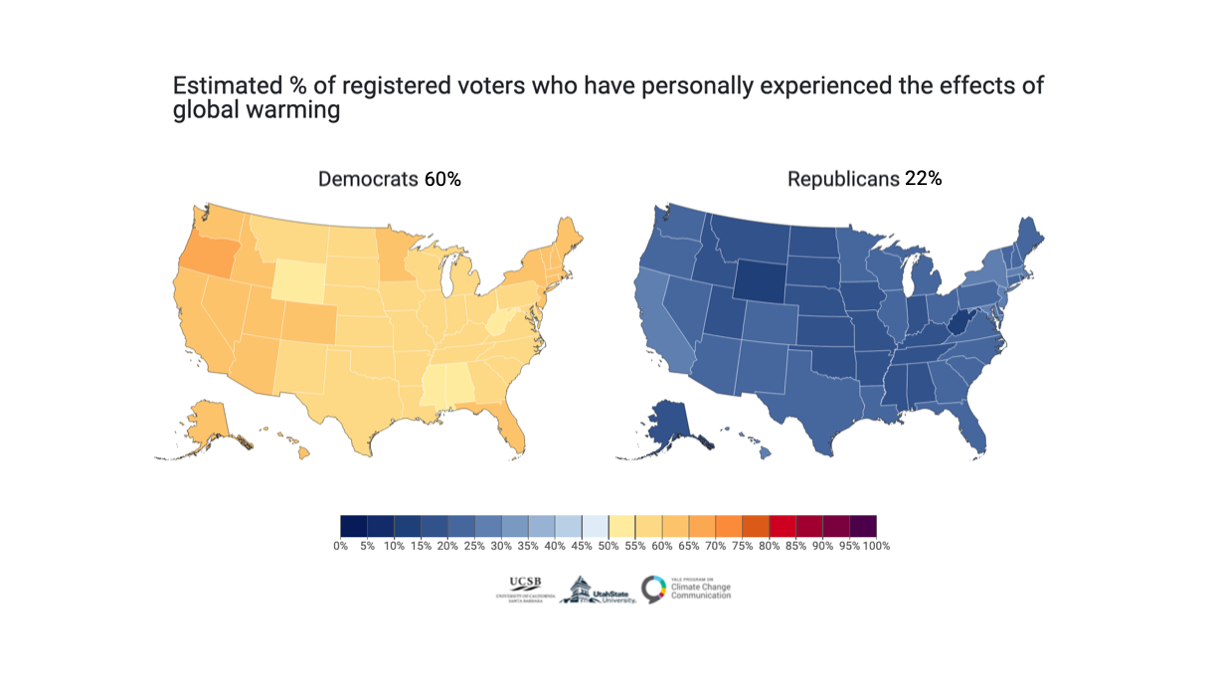Peer-Reviewed Article · Aug 26, 2021
Hot Dry Days Increase Perceived Experience with Global Warming
By Jennifer Marlon, Xinran Wang, Matto Mildenberger, Parrish Bergquist, Sharmistha Swain, Katharine Hayhoe, Peter Howe, Edward Maibach and Anthony Leiserowitz
Filed under: Beliefs & Attitudes

We are pleased to share the results of a new study exploring whether, when, and where local climate trends have already influenced perceived experiences of global warming in the United States.
Previous research has found that most Americans (70%) understand that global warming is happening, but only 50% say that they are “very” or “extremely” sure. We wanted to better understand why only half of Americans are confident that the planet is warming when, for many of us, the weather outside seems to be making the point over and over.
Our new research investigated what kinds of weather events (if any) are associated with the belief that one has personally experienced global warming. We examined short and long-term changes in seven different local climate indicators from 2008 to 2015, including two temperature measures (hot days annually and seasonal heat maximums), three precipitation measures (dry spells, heavy rains, and very heavy rains), and two combined temperature and precipitation measures (snow days and hot dry days). Of these, only an increase in hot, dry days (i.e., drought) was associated with an increase in people’s reported experience of global warming. As of 2015, most Americans did not link heavy downpours to climate change, even though very heavy precipitation rates have dramatically increased in every state except Hawaii, and especially in the Great Lakes and Northeast regions. Increased flooding during heavy precipitation events associated with climate change has caused billions of dollars in damages in the US over the past three decades. And attribution studies have documented that many of these events were extremely unlikely without the influence of global warming.
As of 2015, most Americans did not link heavy downpours to climate change, even though very heavy precipitation rates have dramatically increased in every state except Hawaii, and especially in the Great Lakes and Northeast regions. Increased flooding during heavy precipitation events associated with climate change has caused billions of dollars in damages in the US over the past three decades. And attribution studies have documented that many of these events were extremely unlikely without the influence of global warming.
Our study also reinforces the finding that weather events are interpreted through the lenses of people’s beliefs, attitudes, and values. For some people, even talking about the weather is now political.  Fortunately, beliefs and attitudes can change. As global warming continues to affect weather events across the country and around the world, and as trusted messengers connect the dots between climate change and extreme weather for their audiences, many more Americans are likely to become convinced that human-caused global warming is happening, harming us here and now, and requires urgent action to reduce and protect against these threats.
Fortunately, beliefs and attitudes can change. As global warming continues to affect weather events across the country and around the world, and as trusted messengers connect the dots between climate change and extreme weather for their audiences, many more Americans are likely to become convinced that human-caused global warming is happening, harming us here and now, and requires urgent action to reduce and protect against these threats.
Read more about the study at Yale Climate Connections and in the original article here.